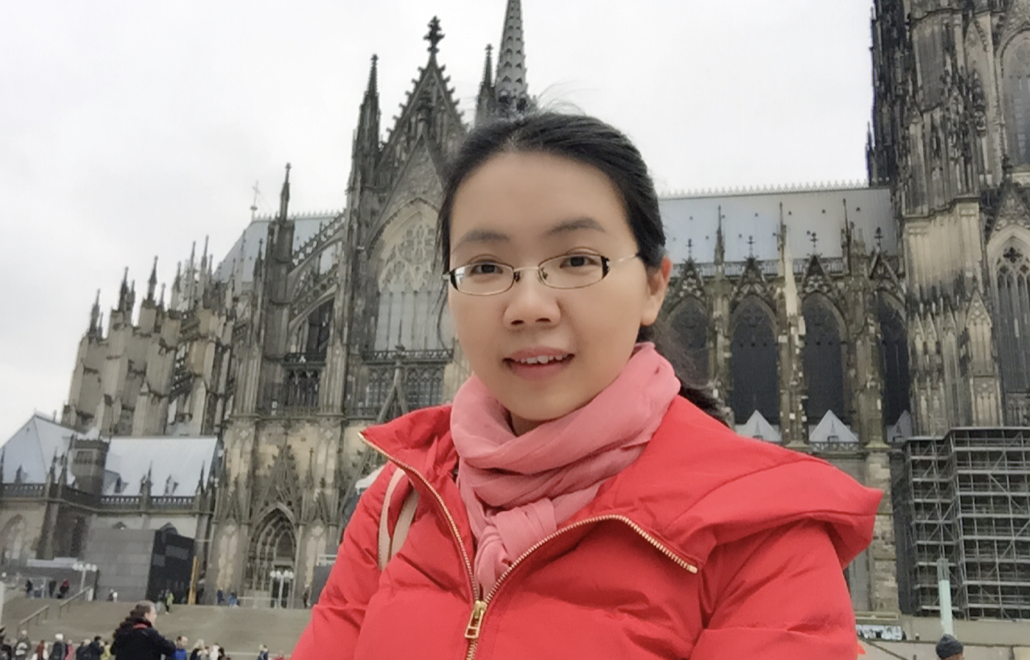Wenjing Liao, an assistant professor in the School of Mathematics who researches high dimensional data analysis and machine learning, has won a National Science Foundation (NSF) Faculty Early Career Development Program (CAREER) Award.
The CAREER Award provides funding for five years and is one of the most significant grants that a scientist can receive early in their profession. The program “offers the National Science Foundation's most prestigious awards in support of early career faculty who have the potential to serve as academic role models in research and education and to lead advances in the mission of their department or organization. Activities pursued by early career faculty ... build a firm foundation for a lifetime of leadership in integrating education and research.”
“I am very grateful to the NSF for its support,” Liao says. “This CAREER Award will not only support my team’s efforts in the area of computational math and data analysis, but it will also support the training of the future data analysis workforce by involving graduate and undergraduate students.”
Liao’s project for the grant is “Exploiting Low-Dimensional Structures in Data Science: Manifold Learning, Partial Differential Equation Identification, and Neural Networks.” Liao says many real-world datasets are high dimensional (more features than observations) but exhibit low dimensional structures (a small number of important features).
“Low dimensional structure is the opposite of high dimensional. For example, a high resolution image may have millions of pixels, but images of similar objects in a dataset may contain very few important features to represent an object, Liao says.
Reducing dimensionality can narrow down datasets to workable numbers by removing redundancies and inessential features. “The success of many modern methods suggests that exploiting low-dimensional structures in data often leads to outperforming results.”
For the educational aspect of the CAREER proposal, Liao would like to help build an undergraduate “Bridge” program for math and data science students to assist with the transition from Georgia Tech to careers in academia and industry.
Liao also proposes to recruit math undergraduates from diverse backgrounds in the greater Atlanta area, and design special math and data science research projects for students in the NSF’s REU (Research Experiences for Undergraduates) program.
Liao has been active in the REU Program in the School of Mathematics, mentoring undergraduates and leading them in undergraduate research projects, having worked with nearly a dozen REU students in several projects including The Double Descent Phenomenon in Machine Learning, and Using Neural Networks to Classify PDEs (partial differential equations). She has also developed a new data science course for undergraduate students in the College of Sciences. In the future, Liao also plans to organize a young researchers workshop on mathematical foundations of machine learning.
Liao won a 2020 NSF award in deep neural networks for structured data as a principal investigator, representing the third NSF award and fourth award overall she has won since becoming an assistant professor at Georgia Tech in 2017.
“Professor Liao is an expert in analyzing data presented to us in high dimensions, but actually being closely identified with surfaces of much smaller dimension. This is a surprising, and essential, aspect of modern data analysis,” says Michael Lacey, professor and interim chair of the School of Mathematics. “We are very pleased that this award recognizes both professor Liao's worldwide expertise in this subject, but also her great successes in training people in modern data analysis. The grant gives her recognition, and support for her further research.”
For More Information Contact
Writer: Renay San Miguel
Communications Officer II/Science Writer
College of Sciences
404-894-5209
Editor: Jess Hunt-Ralston
Director of Communications
College of Sciences



